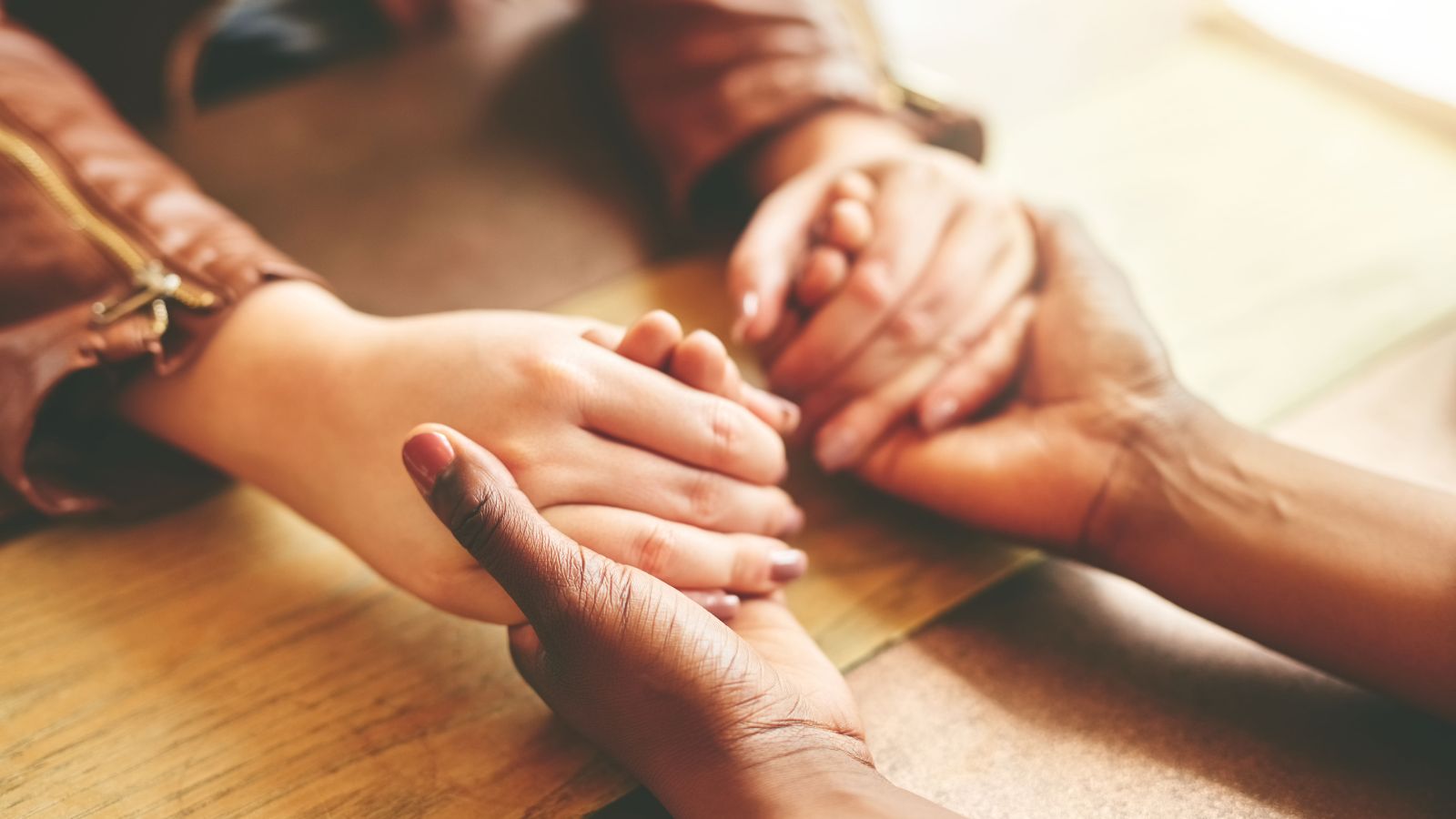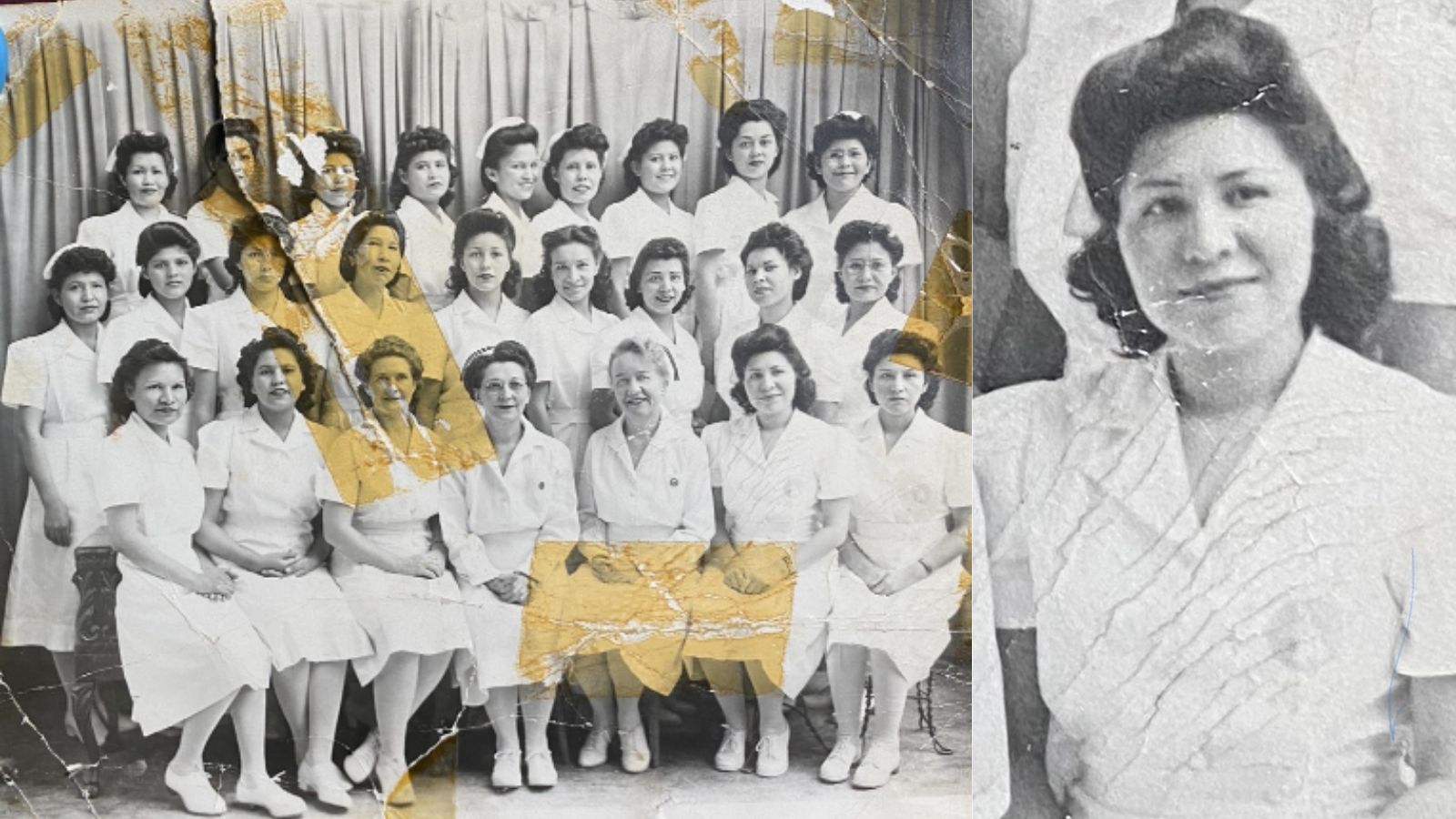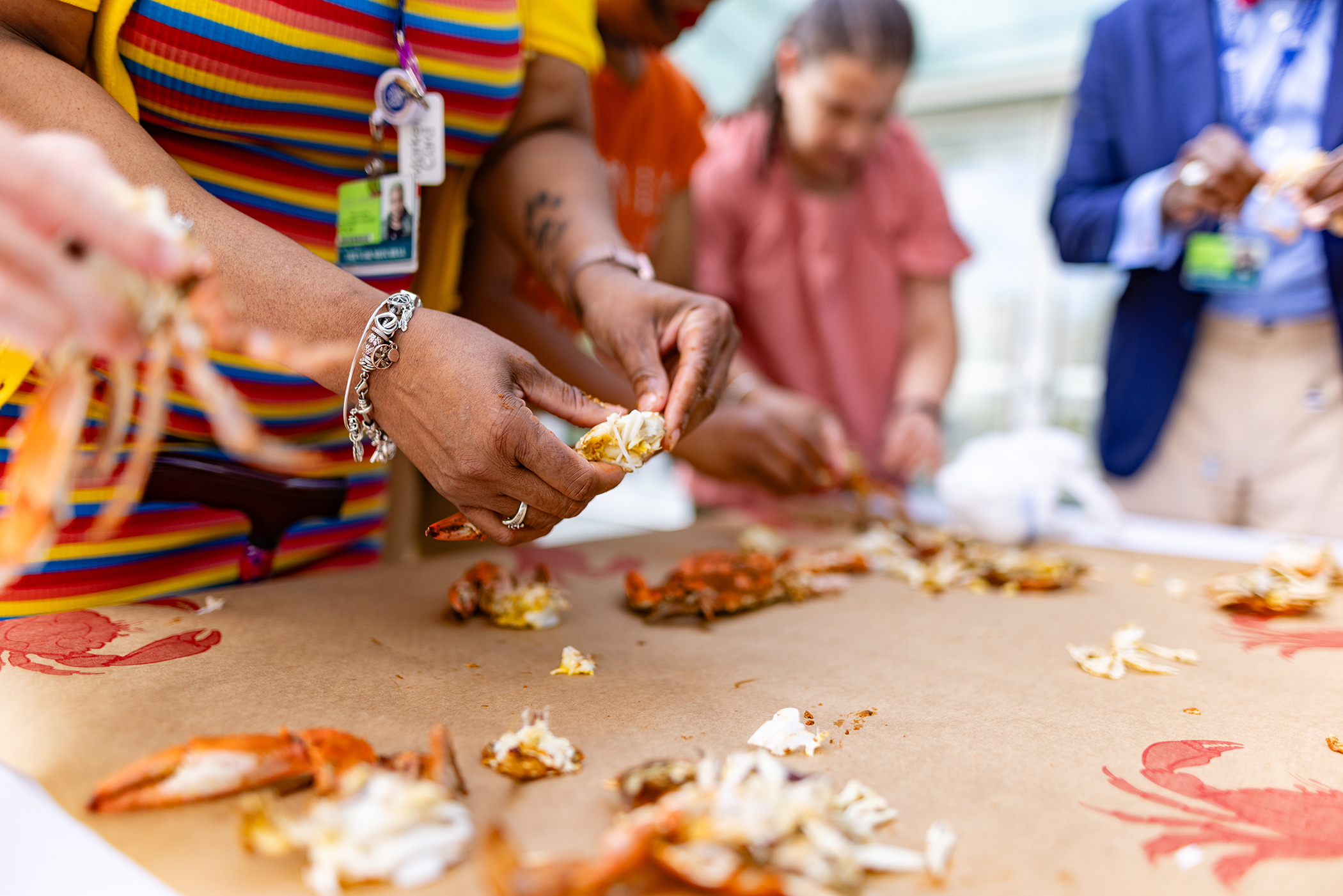“Culture, the values we exist in and the strength of community despite everything, there is a beautiful resilience in that,” says Adriann Ricker.
That’s the underlying premise of Little Holy One, a study intervention led by Teresa Brockie, PhD, RN, FAAN that aims to instill traditional Dakoda and Nakoda cultural values in children as a protective factor against adolescent suicide and substance use. We first met Little Holy One last year in “Fort Peck Indian Reservation: The Healthy People Factory.” Since then the program’s taken shape; Adriann Ricker, Alexandria Granbois, and Shannon Martell now make up the on-the-ground research team. They were set to begin a small-scale pilot at Fort Peck’s Head Start facility in spring 2020, when the coronavirus pandemic broke.
Faced with COVID-19, “community despite everything” remains a value at the core of the project; Little Holy One’s research team stepped up to support on-the-ground COVID relief efforts.
Faced with COVID-19, “community despite everything” remains a value at the core of the project; Little Holy One’s research team stepped up and pivoted to support on-the-ground COVID relief efforts through supportive isolation and data reporting, in conjunction with the Johns Hopkins Center for American Indian Health, tribal leadership, and other entities. The groups’ collective, coordinated efforts have been able to fundraise for masks, food and supplies to support isolation and quarantine. There is a big need on the reservation—and the team is stepping up to meet this need, while preparing for a pilot they can hopefully begin soon. “It’s been a lesson in patience,” Adriann says. “We’re eager to start but as Indigenous people residing in our communities we’re mindful of health and safety first.” They were set to launch again around Labor Day but there was another spike in cases of COVID-19 cases on the reservation.
Barriers and facilitators to research participation
The research team is also taking the extra time to examine barriers and facilitators to research participation. “We’re mindful of how to support our community right now because we are experiencing death at a greater magnitude and its interrupted our grieving process,” Adriann says.
Family and community are very interconnected, and trauma is a recurring theme here. “We are having a lot of conversations for how to provide emotional support and ensure there isn’t a restrictive timeline so we can be there with them.” And “emotional support” includes staff suicide prevention training.
Led by Indigenous values
Little Holy One aims to instill traditional values in children to help prevent adolescent suicide and substance use, to teach parents and caregivers methods for coping with trauma and stress, and to teach positive parenting practices. With implementation on hold, Dr. Brockie, along with co-investigator and former Tribal Chairman Larry Wetsit, still make decisions based on traditional values: family, community first, and health and wellbeing for all. “Our culture is our strong point,” says Alexandria Granbois.
Right now, there is a large surge in reintroducing cultural practices and language. “it’s important to keep that going,” Adriann says. “I feel a responsibility to those that have gone before, since we have been given the opportunity to reclaim the culture that they had to give up.”
This blog is a part of the “Dialogues in Health Equity” series by the Health Equity Faculty Interest Group. They are committed to decreasing health disparities experienced by local and global communities by promoting social justice and health equity through nursing practice, research, education, and service.
Read more:
- Health Justice Begins with ACKNOWLEDGEMENT
- Indigenous communities are resilient, but stretched too thin, in the face of COVID-19
- A Q&A with Natalie Nicholson and Amanda Wyatt, Native Nurses and DNP Executive Track Students
- Fort Peck Indian Reservation: The Healthy People Factory
- Acknowledging the Land on Which we Build
- Center for American Indian Health

 Forging Policy: How Can Doulas Improve Black Maternal Health?
Forging Policy: How Can Doulas Improve Black Maternal Health? You’re Welcome
You’re Welcome My First Teachers in Nursing School Weren’t Nurses
My First Teachers in Nursing School Weren’t Nurses Louise Three Stars Smith Turns 100, and Offers a Legacy of Healing for Native Nurses
Louise Three Stars Smith Turns 100, and Offers a Legacy of Healing for Native Nurses JHSON Highlights
JHSON Highlights






